









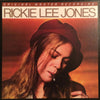
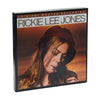
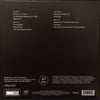
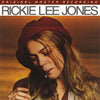
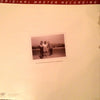
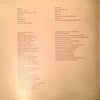
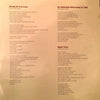
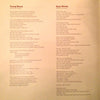
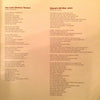
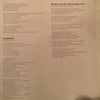
Rickie Lee Jones – Rickie Lee Jones (2LP, 45 tours, Coffret, Ultra Analog, Half-speed Mastering)
ORDER LIMITED TO ONE ITEM PER CUSTOMER
Guitar, vocals - Rickie Lee Jones [click here to see more vinyl featuring Rickie Lee Jones]
Backing Vocals – Arno Lucas, Joe Turano, Leslie Smith, Matthew Wiener, Michael McDonald, Rickie Lee Jones
Guitar – Buzzy Feiten, Fred Tackett
Accordion – Nick DeCaro
Bass – Red Callender
Bass [Fender Bass] – Willie Weeks
Drums – Andy Newmark, Jeffrey Porcaro, Mark Stevens (A2), Steve Gadd, Victor Feldman
Horns – Chuck Findley, Ernie Watts, Tom Scott
Keyboards – Mac Rebennack, Neil Larsen, Ralph Grierson, Randy Kerber, Rickie Lee Jones, Victor Feldman
Mandolin – Fred Tackett
Percussion – Mark Stevens (A2), Rickie Lee Jones, Victor Feldman
Synthesizer – Michael "Bobby" Boddicker, Randy Newman
Horns arranged by Rickie Lee Jones
Written by Rickie Lee Jones and Alfred Johnson (D2-3)
2 LP, Box set
Limited numbered edition
Original analog Master tape : YES
Half-speed Mastered
Gain 2™ Ultra Analog
Heavy Press : 180g
Record color : black
Speed : 45RPM
Size : 12”
Stereo
Studio (A1, A3, B1-D2) and live (A2, D3)
Record Press : RTI
Label : MOFI
Original Label : Warner Bros.
Recorded September–December 1978 in Warner Bros. Recording Studios and The Burbank Studios (A1, A3, B1-D2) and live at TBS on December 22, 1978 (A2, D3)
Engineered by Lee Herschberg, Loyd Clifft
Produced by Lenny Waronker, Russ Titelman
Mixed by Lee Herschberg
Mastered by Krieg Wunderlich and Lee Herschberg at Mobile Fidelity Sound Lab
Originally released in February 1979
Reissued in 2013
Tracks:
Side A:
- Chuck E's In Love
- On Saturday Afternoons in 1963
- Night Train
Side B:
- Young Blood
- Easy Money
- Last Chance Texaco
Side C:
- Danny’s All-Star Joint
- Coolsville
Side D:
- Weasel and the White Boys Cool
- Company
- After Hours (Twelve Bars Past Goodnight)
Awards
1980 Grammy Award for Best New Artist
The Absolute Sound 40th Anniversary Best Sounding Music!
Reviews:
“With her expressive soprano voice employing sudden alterations of volume and force, and her lyrical focus on Los Angeles street life, Rickie Lee Jones comes on like the love child of Laura Nyro and Tom Waits on her self-titled debut album. Given the population of colorful characters who may or may not be real people that populate her songs -- Chuck E., Bragger, Kid Sinister, and others -- she also might have had Bruce Springsteen in her bloodline (that is, the Springsteen of his first two albums), and her jazzbo sensibility suggests Mose Allison as a grandfather. Producers Lenny Waronker and Russ Titelman, who know all about assisting quirky singer/songwriters with their visions, have brought in a studio full of master session musicians, many of them with jazz credentials, and apparently instructed them to follow Jones' stop-and-start, loud-and-soft vocalizing, then overdubbed string parts here and there. The music thus has a sprung rhythmic feel that follows the contours of Jones' impressionistic stories about scuffling people on the streets and in the bars. There is an undertow of melancholy that becomes more overt toward the end, as the narrator's friends and lovers clear out, leaving her "Standing on the corner/All alone," as she sings in the final song, "After Hours (Twelve Bars Past Goodnight)." It's a long way, if only 40 minutes or so, from the frolicsome opener, "Chuck E.'s in Love," which had concluded that he was smitten by "the little girl who's singin' this song." But then, the romance of the street is easily replaced by its loneliness. Rickie Lee Jones is an astounding debut album that simultaneously sounds like a synthesis of many familiar styles and like nothing that anybody's ever done before, and it heralds the beginning of a potentially important career.” AllMusic Review by William Ruhlmann
Ultra Analog™ : The GAIN 2 Ultra Analog™ Series stems from the use of the Gain 2 system, mastered at half speed from the original master tapes where possible, capturing and uncovering as before undiscovered sonic information.
Half-speed mastering. In half-speed mastering, the whole process is slowed down to half of the original speed. A typical 33 1/3 rpm record is cut at 16 2/3 rpm. The source material is also slowed down (reducing the pitch in the process) meaning the final record will still sound normal when played back. Slowing the whole process down allows more time, which means the end result sounds better and is more efficient — allowing engineering to minimize the effects of inherent limitations within the vinyl format. The result is a more accurate and more open high-frequency response in the half speed vinyl when compared with a normal speed recording.
Ratings :
AllMusic : 4 / 5 , Discogs : 4.79 / 5





